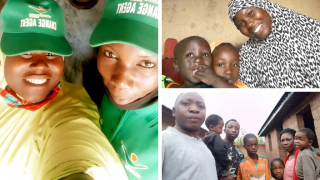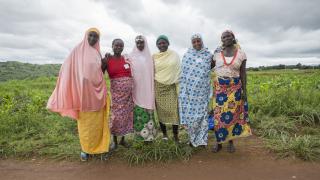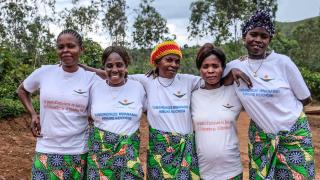Reframing Sexual Violence in Conflict: Zawadi's Story
Reframing Sexual Violence in Conflict: Zawadi's Story
Women’s lived experiences in the Democratic Republic of Congo expose what sexual violence in conflict truly looks like, and what we must do to end it.
Yet for the vast majority of survivors, their experiences of violence don’t fit the narrative of soldiers raping and pillaging. Their abusers are likely to be civilians from their own communities - probably their own partners or family members.
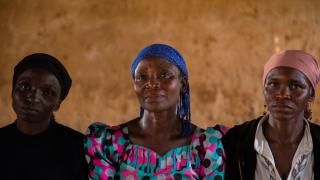
Up 70% of women in crisis settings experience gender-based violence, compared with 1 in 3 globally.
'Rape capital of the world'
When they enrol in our DRC programme, women are struggling to meet their families’ basic needs. The mining activity in the region fuels violence and insecurity, which is exacerbated by restrictive gender norms. Women are prevented from accessing land, income, education and healthcare. Their fragile economic status exposes them to high levels of exploitation and abuse. This takes many forms, ranging from child marriage and intimate partner violence, to engaging in paid sexual encounters in order to feed their children. Sexual violence in conflict is not just rape by militia groups.
Zawadi is one of our participants in North Kivu. She lives in the town of Rubaya, near to the largest coltan mine in DRC. In an interview before enrolment, Zawadi shared a snapshot of her life before joining our training programme.
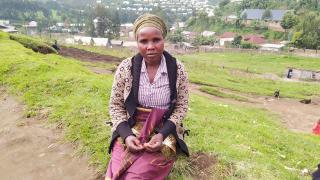
“I was born into a family of six children, three boys and three girls. I never had the opportunity to go to school, only my brothers did in our family. I am now a widow with three children of my own, and none of them are studying because I can’t afford school fees."
Since her husband died, Zawadi is the sole breadwinner of the household.
“To support my family, I have a small business selling corn flour. During the COVID-19 pandemic, my business collapsed and I could not afford to pay rent, so I relied on working in the fields for $1.50 (3,000 Congolese francs) a day. My main challenge is to support my family expenses on a day-to-day basis and pay our rent of $10 a month. That is why I have to do extra work, such as carrying luggage to the mining field from Rubaya centre. I get paid according to the weight and nature of the items, ranging from $5 (10,000 FC) per trip.
I want to join the Women for Women International programme because I want to change my life, support my family and be a model for the vulnerable women of Rubaya”.
SOCIAL NORMS THAT PERPETUATE ABUSE
Data from our programme participants demonstrates how normalised gender-based violence is within civilian society in DRC. It starts at home: 57% per cent of women we work with in DRC reported experiencing spousal violence, and 62% agreed that a man can beat his wife if she refuses to have sex with him.
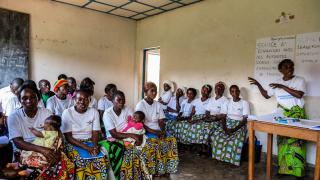
During our programme, women develop knowledge of their rights and learn how to challenge restrictive norms in their communities.
Ending the war on women
Tackling violence through economic empowerment and norm change
Thank you to everyone who plays!
Grace and Hadiza are two brave women who are challenging norms and making their voices heard as they advocate for change in their communities in northern Nigeria. Using radio, they are helping women to speak up against gender-based violence and empowering them to get the medical and legal support . Graduates from the Stronger Women, Stronger Nations Programme, these two women are an example of what can be achieved when women believe in the #PowerToChange accepted norms.
After two decades of progress and backlash, what’s next for the Women, Peace and Security Agenda?
subtitle:
Three recommendations to preserve progress and address ongoing challenges to women's rights in conflict settings.
We are pleased to share the results of our 24-month impact evaluation of our one-year programme the DRC.

